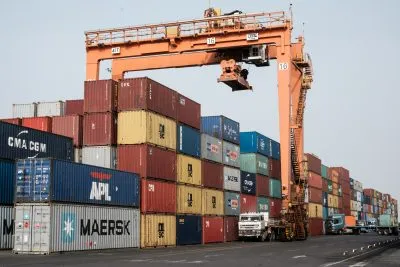While Western investors continue to shun Zimbabwe, the BRICS countries are rushing in to fill the void. China is already the country’s largest investor and Russia is now snapping at its heels with several mega projects. Barnabas Thondhlana reports from Harare.
Russian investors are stepping up their presence in Zimbabwe, competing against China for a share of the country’s rich resources – from platinum to diamonds, commodities and a bank.
In its latest report, advocacy group Centre for Natural Resource Governance (CNRG) said the Brics nations – Brazil, Russia, India and China – were taking advantage of Zimbabwe’s standoff with Western nations to negotiate deals worth billions of dollars.
While relations between Zimbabwe and the West are thawing, trade volumes between the country and China doubled between 2010 and 2013 to $1.1bn. In 2010, trade between the two countries stood at $562m. China has invested more in Zimbabwe than any other nation with 35 companies doing business in the country.
“So that means in these three years we have doubled our trade cooperation,” said outgoing Chinese economic and commercial counsellor Han Bing. “And what’s more in these three years? In our bilateral trade, Zimbabwe enjoys trade surplus every year.”
Bing said in 2013 Zimbabwe’s trade surplus with China was $274m, with the biggest Chinese imports from Zimbabwe being tobacco. China has been dominating tobacco imports from Zimbabwe since 2009.
He said Chinese investment to Zimbabwe has been on the increase since 2010, where it stood at $33.8m before rising to $460m in 2011 and over $600m in 2013.
The Zimbabwe Investment Authority (ZIA) recently revealed that China emerges as a consistent top investor in Zimbabwe from 2010, with its investments contributing $670m from a total of $930m worth of projects approved last year.
“So in these three years, especially in 2011 and 2013, Zimbabwe ranked number one in the whole of Africa in respect of attracting Chinese investments,” Bing said.
He added that most Chinese investors in Zimbabwe were still at the investing phase and were yet to reach the profit phase. He confirmed that China was working on providing loans to Zimbabwe that would be secured by mineral resources.
He said the Export-Import Bank of China had already granted $1bn of loans to the country for infrastructure projects such as Victoria Falls Airport enlargement, Kariba South Power Station, Harare water and state-owned mobile cellular telephony company NetOne.
China has also made inroads in Zimbabwe’s agricultural sector, taking up several farms acquired by government during the land reform programme. These grow a variety of crops ranging from tobacco, wheat and sorghum to soya beans, the majority of which is exported to China.
“There is no evidence that China’s agricultural produce is contributing to food [in]security in Zimbabwe. Maize, Zimbabwe’s staple food, is shunned by Chinese farmers,” the Centre for Natural Resource Governance says.
China has become a major player in the country’s economy through its joint venture enterprises such as Anjin Investments, involved in diamond mining ventures with the military at the diamond-rich fields of Chiadzwa, some 210km east of the capital; and Sino-Zimbabwe Holdings, which previously had a concession in the diamond fields as well. Anjin has the largest diamond concession in Marange.
Want to continue reading? Subscribe today.
You've read all your free articles for this month! Subscribe now to enjoy full access to our content.
Digital Monthly
£8.00 / month
Receive full unlimited access to our articles, opinions, podcasts and more.
Digital Yearly
£70.00 / year
Our best value offer - save £26 and gain access to all of our digital content for an entire year!
 Sign in with Google
Sign in with Google 



